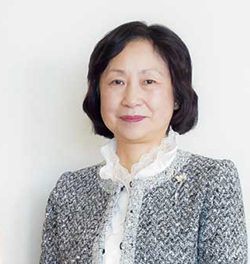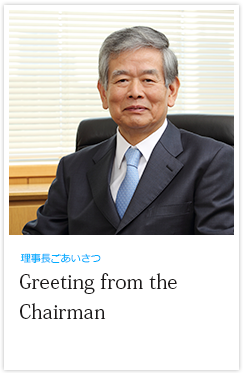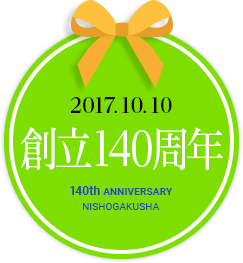GREETING
Greeting from the President
The Uses of Tradition in a Changing World

In 2017, Nishogakusha University celebrates the 140th anniversary of our founding.
Established in 1877 (the 10th year of the Meiji period) as a school of Sinology, Nishogakusha has successfully adapted to changing social needs through the three subsequent periods: Taishō, Shōwa, and today's Heisei. In the early days, when an education in Chinese classics was considered the sine qua non of scholarship, the Academy soon attracted a broad enrollment and earned its reputation as one of Tokyo's "big three". In particular, students wishing to advance to a career in the military or judiciary came here to prepare for the Chinese-classics entrance exams that were required by the Ministry of Justice Law School, the Japanese Army Academy, and other pre-eminent career schools of the time.
In 1928, the school was reestablished under the name Nishogakusha Academy, with the missions of training prospective teachers educating secondary-school students in kokugo (Japanese language and literature) and in Chinese classics. With many strong graduates proceeding into the academic field, the Academy soon established a second reputation as a center for both kokugo and Sinology studies.
In 1949, the school became an accredited college under the nation's new educational system, offering both Japanese Literature and Chinese Literature study courses, and continuing to achieve recognition for both. During this post-war period, the school trained many kokugo teachers for work in middle schools and high schools throughout the country, while also graduating many Sinology researchers, kokugo researchers, and calligraphers. Over the succeeding years the school continued making significant contributions to the Japanese educational world.
In 1993 the school itself graduated into a University with the addition of a Faculty of International Political Science and Economics. With the Cold War now over and with globalization trends firmly in place, the school understood the need to expand its educational range to include international politics, economics, and law, with the goal of producing students capable of contributing to an increasingly complex global society. Graduates from this Faculty move on to careers in civil service and in international institutions and global corporations.
Over the past two decades we have seen an acceleration in globalization and international competition, while at the same time witnessing an apparent slowdown in Japan's economic and social growth. As a result of the country's low birth rates, the population of 18-year-olds is now in decline. Under these conditions, Japanese universities are experiencing something of an existential crisis. At Nishogakusha, it is now our task to maintain our traditions while also implementing major innovations that will keep us both relevant and important to the society at large.
Accordingly, our University shall carry on our tradition of educational excellence, while at the same time broadening and strengthening our educational range. We shall continue valuing kokugo as an ideal basis for instruction in critical thinking, judgment, and self-expression; even as we adapt our approach to ensure that we equip every student with the skills and knowledge that will serve their personal growth and enable them to thrive and contribute to our changing global society.

Junko Sugawara
President Nishogakusha University






